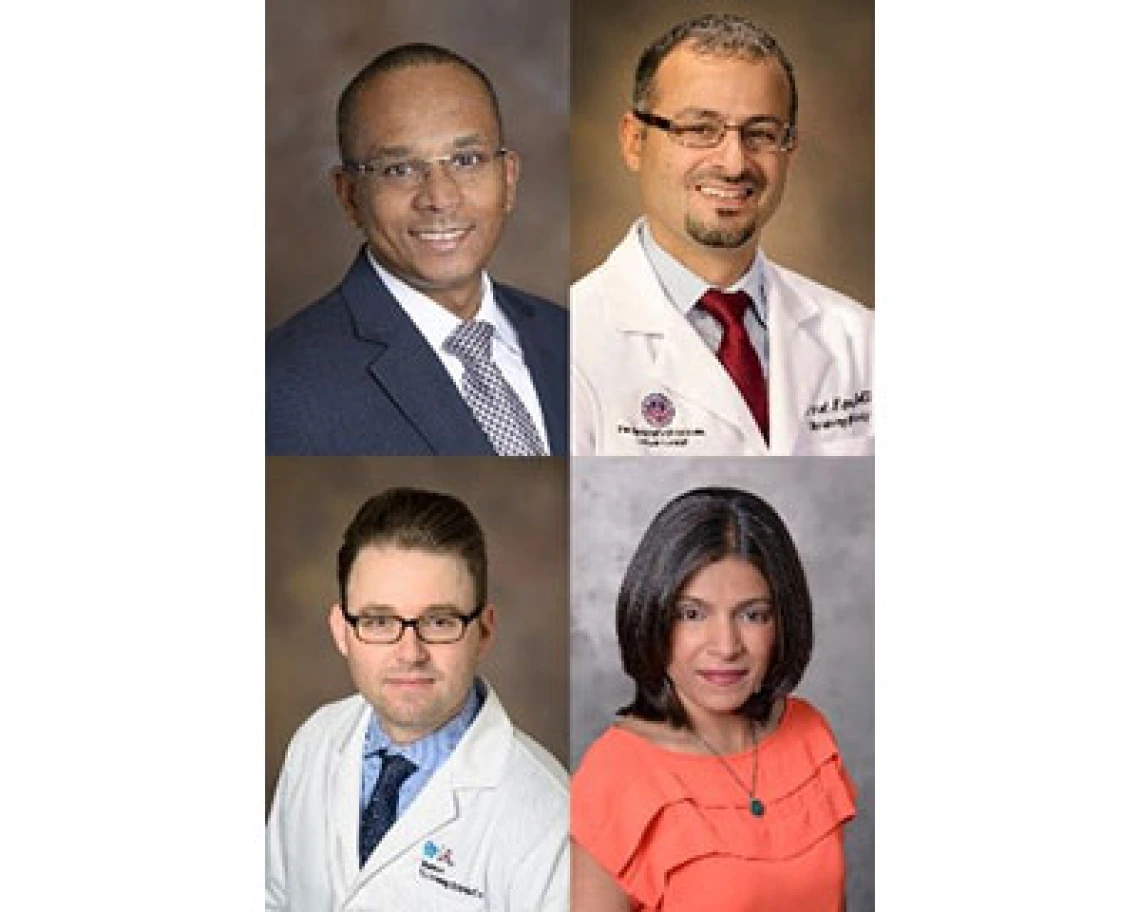Treatment Options Expand for Gastrointestinal Cancer Patients at UA Cancer Center
Gastrointestinal cancer is a “family” of cancers that include colorectal, gastric, liver and pancreatic tumors, among others. Patients receive cutting-edge care at the UA Cancer

When physician-scientist Rachna Shroff, MD, joined the University of Arizona Cancer Center last year as the new section chief of gastrointestinal medical oncology and leader of the GI Disease-Oriented Team, she set her sights on expanding clinical trials, which give patients access to experimental drugs with the hope of ushering in safer, more effective treatments.
“We’re bringing in new and novel ideas, filling holes to make sure we have trials for all of our patients,” Dr. Shroff said. “Our goal is to have a clinical trial for every single patient who comes in.”
Just last month, Dr. Shroff opened a national Phase III study through the Southwest Oncology Group (SWOG) investigating nab-paclitaxel in biliary tract cancer — the first of its kind in North America. Biliary tract cancer, arises in the bile duct, a series of tubes that connect the liver to the small intestine.
“It’s a pivotal, potentially practice-changing study,” Dr. Shroff said. “Historically in this country, newly diagnosed biliary cancer patients have not had clinical trial options.”
With Dr. Shroff at the helm, the rest of the team includes Emad Elquza, MD, Aaron Scott, MD, and Hani Babiker, MD, all of whom are successful oncologists and clinical trial investigators. Over the past year, the research team has grown to support the additional trials, adding coordinators, nurses and other staff members to its ranks.
Harnessing the immune system
The GI team is offering several clinical trials investigating immunotherapy, a type of cancer treatment that is different from chemotherapy, which attacks all rapidly dividing cells rather than specializing in cancer cells.
“Immunotherapy, in theory, activates the body’s own immune cells to attack cancer cells,” Dr. Shroff said. “It is using your body’s own natural defense mechanism against cancer.”
Immunotherapy trials are available for several patient populations, including patients with colorectal cancer, liver cancer and squamous cell carcinoma of the esophagus, the latter of which Dr. Shroff describes as an “overlooked population.”
“Squamous cell carcinoma in the esophagus is sometimes forgotten about in terms of clinical trials, but it’s a really important population,” Dr. Shroff said.
“We’re really excited about having an immunotherapy option for these patients and Dr. Elquza is spearheading this effort in upper GI malignancies.”
Hitting the target
UA Cancer Center patients also can receive molecular profiles of their tumors, which in many cases allows doctors to match patients to “targeted” drugs. These types of drugs are able to single out cancer cells more effectively than chemotherapy, usually by attaching to proteins that are more common on a cancer cell’s surface.
“As a team, we aim to profile and sequence every single patient who hits the door,” Dr. Shroff said. “We want to understand what targets they may have so we can go after those targets in a smart and concerted way.”
Clinical trials investigating targeted therapies are available for patients with claudin-positive upper GI cancers, HER-2 positive GI cancers, GI cancers with homologous repair deficiencies, biliary cancers and refractory colorectal cancers.
The latter trial in colorectal cancer is being led by Dr. Scott, who designed the investigator-initiated trial and is heading up national efforts to run it at multiple sites across the country. Patients with refractory colorectal cancer have run through most available treatments, and Dr. Scott hopes cabozantinib, which already is approved for kidney cancer, will be able to “target” and destroy cancer cells. Additionally, all patient samples nationwide will be analyzed by UA scientists to establish whether and how well the drug benefits patients.
A built-in second opinion
Patients need not be enrolled in a clinical trial to receive top-of-the-line care. The UA Cancer Center uses a “multidisciplinary” approach, meaning teams meet regularly to discuss cases. The path a patient’s care takes is shaped by input from multiple sources, including medical oncologists, surgeons, radiation oncologists, radiologists, interventional radiologists and pathologists.
“The more brains that look at a case, the better the care,” Dr. Shroff said. “It helps you think outside of the box and ensures we consider every possible avenue. We make sure each patient who comes into the clinic is getting the true expert in their field.”
Whether they are participating in a clinical trial or receiving standard treatments, UA cancer patients are in good hands.
“We are personalizing care for patients, both from a multidisciplinary approach, as well as at the genomic level,” Dr. Shroff said.
About the University of Arizona Cancer Center
The University of Arizona Cancer Center is the only National Cancer Institute-designated Comprehensive Cancer Center with headquarters in Arizona. The UA Cancer Center is supported by NCI Cancer Center Support Grant No. CA023074. With primary locations at the University of Arizona in Tucson and at Dignity Health St. Joseph’s Hospital and Medical Center in Phoenix, the UA Cancer Center has more than a dozen research and education offices throughout the state, with more than 300 physicians and scientists working together to prevent and cure cancer. For more information: uacc.arizona.edu (Follow us: Facebook | Twitter | YouTube)

